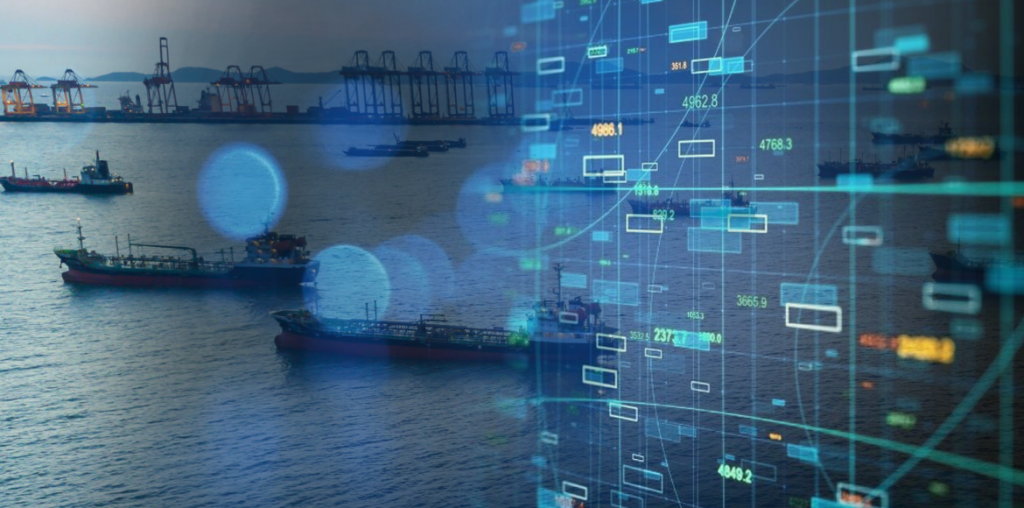Real time data – the future of the maritime industry?

Real time data maritime industry– Real-time data is becoming more achievable every day. While the maritime industry is not there yet, we are moving towards ever faster data collection, analysis and communication. With new data management tools, you can see what actions need to be taken based on the most up to data information.
With maritime companies needing data from many different sources and formats, speeding up the gathering and presentation of this data is a real logistical challenge.
The rise of real-time data
Real-time data (RTD) is information delivered immediately after collection. Such data is usually processed using real-time computing, although it can also be stored for later or off-line data analysis.
Using the most up-to-date data optimises your insights for making better crucial decisions, more quickly. **When time is of the essence to prevent an issue, this can make a huge difference.**
Especially in an ever-increasingly fast paced and ‘VUCA’ (meaning ‘volatile, uncertain, complex and ambiguous’) world, it is critical to have the most up-to-date information to stay ahead of your competitors. Companies are therefore increasingly looking to take advantage of real-time data to ensure they are best placed to cope.
However, this requires some substantial work to set up, particularly in an industry as complex as the maritime one.
How real-time data can benefit the maritime industry
It is perhaps not a surprise that many maritime companies still operate on historical data – meaning they can’t get such rapid insights. In fact, some maritime data can be as much as 3 years old by the time it is available for use.
This can have a significant impact on companies’ ability to understand the changing trends and patterns that might affect safety; and to address the issues they face.
– In a changing industry, new threats can come as a surprise. Slow data analysis makes it difficult to spot trends before an incident occurs/
– Even worse, if the data from even your own vessels is outdated, then actual problems they are facing can be missed while they are still manageable, and not be noted until they have grown into a more serious issue months or even years later.
By using more recent data, you keep right up to date with what’s happening in your fleet, and what it specifically needs, rather than relying on generic or outdated guidance from the industry.
You can eliminate small technical problems quickly when they first emerge and are smaller or less complex to fix, and mitigate against more serious issues.
This all comes through the speed and quality of issue-reporting. For example, a traditional industry report might have spoken of a generic large risk (e.g. flooding). However, it would not be able to supply the analysis of how it might affect you specifically; what the causes are; the risks you face; and how to prevent it – this would be down to you. This is because the necessary data to do so would either not be publicly available, or out of date – or both.
Furthermore, even if you could calculate all of these and come up with a plan to reduce your risk, the extra time taken increases the likelihood of you suffering an incident.
However, with tailored and rapid data, your chances of preventing disaster are greatly improved. You see issues more quickly and will have a greater knowledge of how to resolve them.
How HiLo supplies the most up-to-date data
At HiLo, we already deliver tailored maritime risk analysis for your fleet quicker than has ever been seen before in the industry – within 3 months of data being submitted.
Recent innovations now mean you can also gain initial data even faster – **from 2 weeks after submitting your data.**
We will continue to provide comprehensive analysis covering the whole 5,000-strong HiLo fleet.
Using recent data to improve maritime safety
This leap forward in speed of data delivery, reporting and analysis will make a huge difference to the industry. It is a significant step towards real-time safety analysis, as comprehensive safety data, analysis and recommendations will only be a few weeks behind your vessel’s real-time status. More issues will be uncovered, mitigated against and solved, more quickly and efficiently than ever before, through the power of accurate data.
Join us today and improve your vessel safety
Gain the most up-to-date data and analysis about your fleet, and see where you need to improve to avoid safety incidents. Request a HiLo demo today and see if it can work for you.